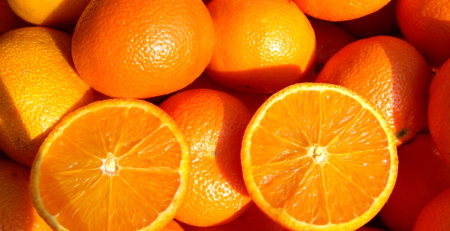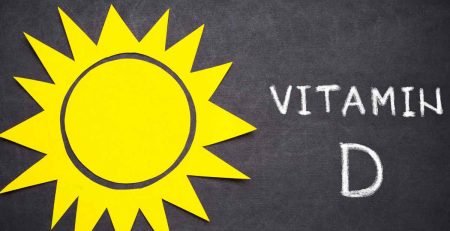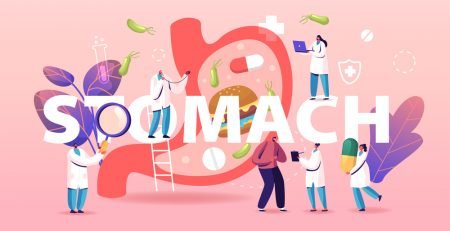Organic Food Versus Conventional Food
What is organic?
The term Organic may refer to foods grown without the use of artificial pesticides or fertilizers, as well as foods that are “healthy” or “close to nature.” In other instances, organic refers to living organisms or stuff produced from living things. Finally, organic refers to something essential to a medical organization or government and anything necessary to a legal meaning also includes organic food.
Organic farming:
Organic farming is a management and agricultural system that combines high biodiversity with environmental protection methods that protect natural resources while following strict animal welfare requirements. Organic farming methods include crop rotation, animal and plant manure as fertilizer, hand-weeding, and biological pest management.

Conventional / Agriculture farming:

Conventional farming, often known as industrial farming, involves synthetic chemical fertilizers, pesticides, herbicides, and other continuous inputs. It may harm human health due to pesticides, and it may generate a large output of food, but the quality is questionable.
Conventional farming includes concentrated animal feeding operations (CAFOs) and genetically modified organisms (GMOs). Traditional agriculture requires a significant amount of resources and energy, yet it is also very productive. They did not widely use conventional farming techniques until after World War II.

Read More: Healthy Eating And Body Image
Pollution is less due to organic agriculture:
According to New research, organic farming recycles Nitrogen far better than conventional farming. It is better for the environment because it uses fewer pesticides and has a greater variety of plants, which increases biodiversity. As a consequence, it produces better soil and improves quality, lowering the danger of pollution. Organic agriculture utilizes recycled nitrogen sources such as manure.
Organic agriculture obtains 80 to 95 per cent of its Nitrogen from recycled sources such as manure and compost. Organic agricultural inputs ranging from 80% to 95% recycled nitrogen sources such as manure and compost. Conventional agriculture, on the other hand, makes effective use of freshly produced reactive Nitrogen.
It does, however, point to ozone depletion, acid rain, and ocean contamination. In comparison to conventional farming, organic farming has less hazardous, non-polluting Nitrogen.
Organic farming and organic food have become more prevalent in recent years. Marketers need to understand organic vs inorganic food, organic vs non-organic food, be safer and healthier, and increase sales. US households purchased 88 per cent of last year, Organic food and the trend is expected to continue. However, organic food labels and claims may be confusing to the ignorant. Let’s look at correctly reading labels to make the best decision while shopping for organic goods.
The Differences between organic and inorganic food:
For a long time, health has been a cause of worry. Our health has a significant concern, with issues ranging from good lifestyle choices to celebrity diets. Each shop includes a section dedicated to organic products. Each distribution includes organic food. Organic food is becoming more popular.
What makes organic food different from non-organic food? To understand the difference between organic and non-organic foods, we must first define organic. The word “organic” refers to the method through which certain foods are produced. Organic farming does not utilize synthetic chemicals, antibiotics, or pesticides.

Synthetic chemicals, fertilizers, insecticides, and medicines are examples of non-organic foods. Here are a few notable distinctions:
1. Beauty:
Differentiate between non-organic and organic foods. Their various forms and colors provide a feeling of uniqueness to the surrounding environment. You, too, are not without faults. Artificial fertilizers and chemicals are used to enhance non-organic foods.
2. Flavor:
Organic food flavors are greater than non-organic food since they produce it without the use of artificial chemicals. It tastes better if the food is organic. Natural food is always tasty and fresh. The better smell of organic food should not be ignored.
3. Diet:
Organic foods are rich in nutrients. As the soil is nourished, more organic foods include vitamins, minerals, enzymes, and micronutrients. Organic foods include 29% more magnesium, 27% more vitamin C, 21% more iron, and 13% more phosphorus than regular diets.
4. Green:
Some people choose organic because it is better for the atmosphere. Organic farming decreases pollutants while also protecting water and the atmosphere. Organic food is available for both you and the atmosphere.
5. Profits:
Suppose the food will grow on non-organic plants using pesticides and synthetic fertilizers. As a result, your health may be affected. Organic fruits and vegetables are higher in nutritional content. In addition, organic foods help to strengthen and enhance your immune system.
6. Nutrients:
Organic and non-organic foods differ. There are no chemicals or pesticides used. Crop rotation helps manage weeds while also delivering nutrients to the soil, such as manure or compost. Products are often colored and kept “fresh” in stores. In non-organic agriculture, chemistry is often used.
7. Price:
Organic food is less costly. Organically produced food offers some health advantages. Although organic products are more expensive than non-organic ones, they may save you money. But will endanger your health. Your health may benefit from home production.
Frequently Asked Questions (FAQ’s):
Is organic food healthier than conventional food?
Organic and traditional foods both offer the same health advantages. However, organic foods are not nutritionally healthier.
Why are organic veggies and meat more expensive than normal ones?
Organic food is usually 50% more expensive than regular food. Farmers must exercise extreme caution with agricultural methods. it may not use chemicals to control pests, weeds, or illnesses. They usually gave animals that are not grown growth hormones and steroids organically to increase milk, output and meat production, resulting in more meat. Farmers may negotiate a lower price since they have more meat and milk to sell.
Is organic food more nutritious than conventional?
Many nutrients, including minerals, vitamin C, and vitamin E, are similar across organic and conventionally grown plants. However, the protein content is higher in traditional crops. Organic foods, as one would expect, have fewer pesticide residues.
Is organic food safer than conventional food?
Pesticide residues in organic foods are 30% lower than in conventional meals. Pesticide levels in organic and non-organic foods were determined to be safe. However, it is unclear what this implies for consumer health. This does not mean that certain meals are appropriate in all circumstances.
For example, antibiotic-resistant bacteria were found to be about one-third less frequent in organic chicken and pig. I have found food poisoning bacteria in both kinds of meals.
What is the difference between organic food and conventional food?
Organic and conventional farming differ in that traditional farming relies on chemical intervention to control pests and weeds and supply plant nourishment. Insecticides, herbicides, and fertilizers are all synthetic.
Images Source: Shutter Stock
Also Read:
- IMPACT OF SMOKING ON ORAL HEALTH
- ANEMIA (IRON DEFICIENCY) IN PREGNANCY | CAUSES, SYMPTOMS, TREATMENTS
- How much Water Should You Drink? – 10 Tips to Perform Well












LEAVE A COMMENT
You must be logged in to post a comment.